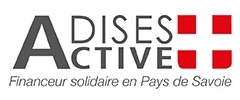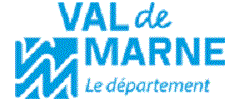Training on construction, maintenance and use of solar collectors in Chardakhi, Georgia
30 participants from eight villages in Georgia were trained from 17-20 october, 2011
18.11.2011 |Miriam Reindl, Annemarie Mohr, Anna Samwel

In Chardakhi the inhabitants live under very basic living conditions, running warm water is a luxury good. For heating up water most of the villagers depend on wood or gas. Mostly Russian pipelines deliver the gas, which is an uncomfortable circumstance for the Georgians due to the fact that the political situation with Russia is still tense.
Our local partner organisation, the Georgian Ecological Agricultural Organisation SEMA, lead by Beso Kalandadze and Jago Bititrishvili have organised our solar collector training from October 17 to 20 in the village Chardakhi at SEMA Resource Centre and in premises of the village school. Participants of 6 regions of the country participated in the workshop that was supported by our German expert and business partner Gerhard Weisse from Solar Partner Sued GmbH.
The training had a tight schedule, besides building a solar collector in 3 days, WECF’s activities were introduced, environmental issues and business opportunities were discussed as well as gender related topics. Most important, all participants got theoretical and practical knowledge on principles, construction, operation, maintenance and use of the collector.

Possible mistakes during construction and operation were discussed.
The group split into two: a monitoring and a construction group. The monitoring group discussed in detail maintenance and use of solar collectors and learned how to monitor the collectors. This is predominant to get exact information on energy and water use before and after the installation of a solar collector in a household. They calculated for example the hot and cold water use for men and women in winter and summer. It was obvious that women use much more hot water than men; they use 90 – 250 litres of hot water per day. It was also calculated that households spend about 30% - 40% of their monthly income on energy.
The construction group built one solar collector under supervision of Gerhard Weisse. During construction many practical construction details were discussed. Participants are now able to construct a solar collector themselves. During common workshops and in the coffee breaks both groups took the chance to share their knowledge to the other group members and ask questions about the next steps.
The first two days especially the Constructing group was lucky by reason of the sunny weather with mild temperatures. All Participants have been really motivated and active and they really worked as a team. This was confirmed by the evaluation forms and the interest that was demonstrated to participate in the next trainings. Two groups- one working process, with different duties and responsibilities to work for one aim, having a solar collector, which works sustainably and over a long time period to save natural resources and to improve their living conditions.
In order to get their certificate as solar collector specialists, each participant of the construction group has to build two functioning collectors, and the members of the monitoring and use group need to deliver extended monitoring information on the constructed collectors. The certificate holders have the chance to become trainers themselves in a follow up training next year.
This training was only the start for bigger actions. Every constructing participant is going to build two solar collectors before Christmas. That means in November and December 2011 collectors will be built in 7 villages around Georgia. The monitoring specialists will then be able to monitor the collectors during the coldest period of the year, January to March 2012.
The training was organised in the frame of the project 'Building local capacity for domestic solar heating, hot water and insulation for rural and remote areas in the EEC region' with financial support of the European Commission. The project started this year and will last 4 years. It is being implemented simultaneously in Ukraine and Georgia. In Georgia the project is implemented by the GREENS, RCDA, Akhaltsikhe and SEMA, in partnership with the international network WECF.

Related News
Meet the Winners of the Gender Just Climate Solutions Award at COP24
On the 70th anniversary of the Universal Declaration of Human Rights, we awarded Gender Just Climate Solutions Winners at the climate negotiations in Katowice, Poland
11.12.2018
Invitation: Gender Just Climate Solutions Award 2018
10 December, COP24 Katowice
04.12.2018
Getting to the Future We Want
4-7 November, Brussels: European Environmental Bureau’s (EEB) Annual Conference
12.11.2018
GoodFood4All
WECF and partners all over Europe start GoodFood4All Campaign
06.11.2018
#Ruralwomen: join our Women2030 campaign!
15.10.2018






































